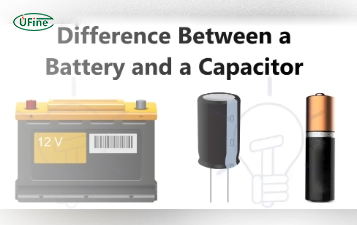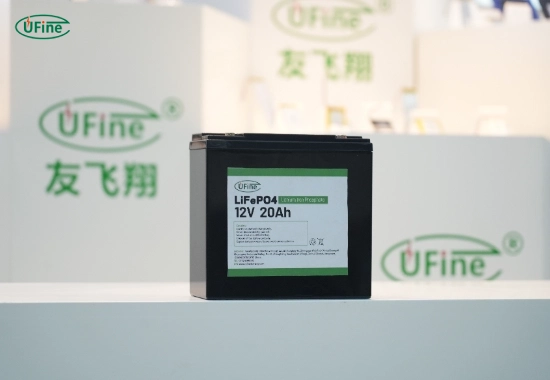
- Part 1. What is a 12 volt DC lithium ion battery?
- Part 2. How does a 12V lithium ion battery work?
- Part 3. What are the advantages of using a 12V lithium ion battery?
- Part 4. How is a 12V lithium ion battery different from lead-acid?
- Part 5. Where can you use a 12V lithium ion battery?
- Part 6. What are the types of 12V lithium ion batteries?
- Part 7. What are the safety tips when using a 12V lithium ion battery?
- Part 8. How to charge a 12 volt DC lithium ion battery?
- Part 9. How long does a 12V lithium ion battery last?
- Part 10. What to look for when buying a 12V lithium ion battery?
- Part 11. FAQs about 12 volt DC lithium ion battery
If you’re wondering what is a 12 volt DC lithium ion battery, the short answer is: it’s a rechargeable battery that delivers 12 volts of direct current and uses lithium-ion chemistry for high efficiency and long life. These batteries are compact, lightweight, and widely used in RVs, solar systems, boats, and backup power setups.
This beginner-friendly guide will walk you through everything you need to know about 12V lithium-ion batteries. We’ll cover how they work, their benefits, their differences from other battery types, and how to use them safely and efficiently.
Part 1. What is a 12 volt DC lithium ion battery?
A 12 volt DC lithium ion battery is a type of rechargeable battery that provides a consistent 12V output using lithium-ion cells. These batteries are known for their long lifespan, lightweight design, and efficient energy storage.
Most 12V lithium batteries are made by connecting four lithium cells in series, each with a nominal voltage of around 3.2 to 3.7 volts. When combined, they deliver roughly 12.8 to 14.8 volts, depending on the state of charge.
These batteries are most commonly used in:
- Recreational vehicles (RVs)
- Solar energy systems
- Marine equipment
- Portable power stations
- Backup battery systems
Part 2. How does a 12V lithium ion battery work?
A 12V lithium ion battery works by moving lithium ions from the positive electrode (cathode) to the negative electrode (anode) during charging. During discharge, the ions move back to the cathode, releasing electrical energy.
The battery pack includes:
- Lithium-ion cells: Usually four in series for a 12V output
- Battery Management System (BMS): A smart circuit that protects the battery from overcharging, deep discharge, and overheating
- Casing: Durable housing that protects the internal components
The Battery Management System plays a crucial role by ensuring:
- Safe charging and discharging
- Voltage balancing between cells
- Protection against short circuits and thermal damage
Part 3. What are the advantages of using a 12V lithium ion battery?
Here are the main benefits of using a 12 volt DC lithium ion battery:
- Lightweight and compact
Lithium-ion batteries are up to 70% lighter than equivalent lead-acid batteries. - Longer lifespan
They usually last between 2000 to 5000 cycles, depending on quality and usage. - Higher energy density
You get more power in a smaller package, making them ideal for mobile and off-grid applications. - Fast charging
They charge much faster than traditional batteries, often reaching 80% capacity in under an hour. - Low self-discharge
They lose very little charge when not in use, typically only 2-3% per month. - Maintenance-free
No need to refill water, check acid levels, or clean terminals.
Part 4. How is a 12V lithium ion battery different from lead-acid?
The differences between lithium-ion and lead-acid batteries are significant:
| Feature | Lithium-Ion | Lead-Acid |
|---|---|---|
| Weight | Light | Heavy |
| Lifespan | 2000–5000 cycles | 300–500 cycles |
| Maintenance | None | Requires maintenance |
| Efficiency | 95% or more | 70–80% |
| Depth of Discharge | Up to 100% | 50% recommended |
| Charging Speed | Fast | Slow |
In short, lithium batteries are more efficient, longer lasting, and easier to manage than lead-acid batteries. Although they cost more upfront, they save money in the long run.
Part 5. Where can you use a 12V lithium ion battery?
12 volt DC lithium ion batteries are versatile and can be used in many applications:
- RVs and camper vans: To power lights, fridges, and appliances
- Solar power systems: As energy storage for off-grid homes or cabins
- Boats and marine: For trolling motors and onboard electronics
- Electric wheelchairs and mobility scooters
- Portable power banks and power stations
- Emergency backup systems
They are especially useful where weight, efficiency, and reliability are important.
Part 6. What are the types of 12V lithium ion batteries?
There are different chemistries under the lithium-ion category. The most common for 12V applications is:
LiFePO4 (Lithium Iron Phosphate)
LiFePO4 batteries offer:
- Excellent thermal stability
- Long life cycles (3000–5000+)
- Safe operation
- Stable voltage output
Other chemistries like NMC (Nickel Manganese Cobalt) or LCO (Lithium Cobalt Oxide) exist but are more common in phones or laptops. For 12V systems, LiFePO4 is the gold standard.
Part 7. What are the safety tips when using a 12V lithium ion battery?
Using lithium-ion batteries is safe, but you need to follow basic safety guidelines:
- Use a proper charger: Only charge with a lithium-compatible charger.
- Avoid overcharging: The BMS usually prevents this, but don’t bypass safety systems.
- Keep away from water: Unless the battery is rated waterproof.
- Avoid extreme temperatures: Don’t charge below 0°C or above 45°C.
- Check for swelling or damage: Never use a damaged battery.
- Secure installation: Vibration or loose connections can lead to failure.
Always read the manufacturer’s manual and guidelines.
Part 8. How to charge a 12 volt DC lithium ion battery?
To charge a 12V lithium-ion battery safely and effectively:
- Use a lithium-compatible charger with the correct voltage profile
- Ideal charging voltage is around 14.4 to 14.6V
- Avoid trickle charging; lithium batteries don’t need it
- Monitor the battery using a Battery Monitor System (BMS) or external meter
Charging is generally fast. Many reach 80% in under an hour, and full charge can take 2-3 hours depending on the charger’s current output.
Part 9. How long does a 12V lithium ion battery last?
The lifespan of a 12V lithium-ion battery depends on:
- Usage patterns
- Charging habits
- Operating temperature
- Quality of battery cells and BMS
On average, these batteries last between 5 to 10 years or 2000 to 5000 charge cycles. One cycle is a full charge and discharge. Even after 2000 cycles, many batteries retain 80% of their original capacity.
Part 10. What to look for when buying a 12V lithium ion battery?
Before you buy, consider these key features:
- Capacity (Ah): How much energy it stores. Common sizes are 50Ah, 100Ah, 200Ah.
- BMS quality: Make sure it includes overcharge, over-discharge, and short-circuit protection.
- Brand reputation: Go with trusted manufacturers.
- Warranty: Look for at least 5 years warranty.
- Certifications: UL, CE, RoHS, and UN38.3 for safety and shipping.
Also, check for expandability if you plan to connect multiple batteries in parallel or series.
Part 11. FAQs about 12 volt DC lithium ion battery
What does 12V mean in a lithium ion battery?
It means the battery delivers 12 volts of direct current (DC) power, suitable for most low-voltage electronics and appliances.
Can I use a car charger for a 12V lithium battery?
No, a standard car battery charger is for lead-acid batteries. Use a lithium-compatible charger with the correct voltage profile.
How do I know when my 12V lithium battery is fully charged?
A fully charged 12V lithium battery typically shows around 14.4 to 14.6 volts. Most chargers have an indicator light or display.
Can I leave a 12V lithium battery connected all the time?
Yes, but only if the system includes a proper charge controller or BMS. Avoid leaving it connected to a charger without monitoring.
Are 12V lithium ion batteries safe?
Yes, they are very safe when used correctly and include a Battery Management System (BMS) to prevent common failures.
Related Tags:
More Articles

Capacitor vs Battery: What is the Difference?
Capacitor vs battery explained in detail. Learn the difference between capacitor and battery in energy storage, charging speed, lifespan, and real applications.
18650 Battery vs AA: Which Is Better for Your Device?
Compare 18650 vs AA batteries in capacity, voltage, rechargeability, and applications. Learn which battery type fits high-drain or everyday devices.
What is the Difference Between Battery Cell, Battery Control Module, and Battery Pack?
Compare battery cells, modules, and packs. Learn functions, design differences, control modules, and selection tips for EV, ESS, and industrial use.
How to Prevent LiPo Battery Explosion?
Can LiPo batteries explode or catch fire? Learn key causes of LiPo battery fires and proven charging, storage, and handling tips to reduce explosion risk.
Aluminium Ion Battery vs Lithium-Ion: A Detailed Comparison
Compare aluminium ion battery vs lithium-ion battery in energy density, charging speed, safety, cost, and uses. A practical guide for engineers and buyers.



